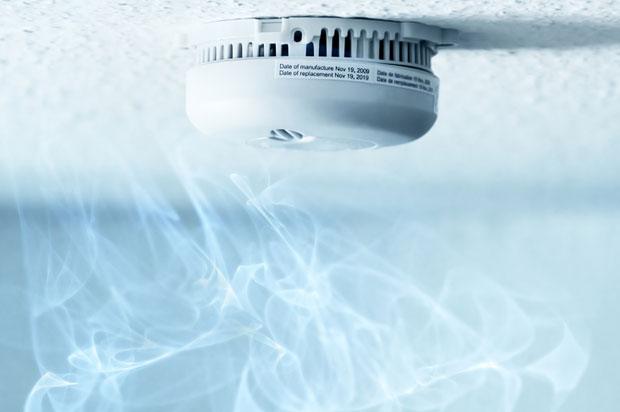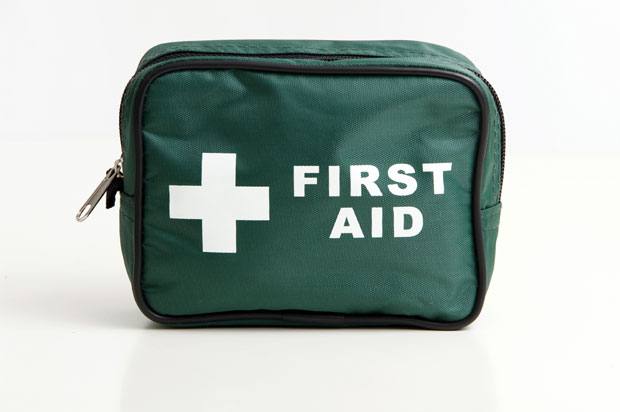My house is on fire!
The Mix's print-out-and-keep guide to staying alive if a fire starts.

Get out quickly and safely
What to do if fire breaks out
We all try to prevent fire starting in our home. But it only takes an unguarded or careless moment for a fire to start. A couple of minutes later and your home could be filled with smoke. Smoke and fumes can kill – you will only have a short time to get out. Use it wisely and try not to panic.
- If you smell burning alert everyone in your flat.
- If you think the fire has taken hold in a closed room, don’t open the door unless you are letting someone out, otherwise the flames could spread.
- If you can safely do so, close the door of the room where the fire has started and close all other doors behind you. This will help delay the spread of smoke.
- Before opening a closed door, use the back of your hand to touch it. Don’t open it if it feels warm – the fire will be on the other side.
- Get everyone out as quickly as possible. Don’t try to pick up valuables or possessions. Make your way out safely and try not to panic.
- Plan your escape route now. Don’t wait until a fire starts.
- Telephone the Fire Brigade on 999 from a neighbour’s house or the nearest phone box. Clearly state the address of the fire.
- Never go back into your home until a fire officer has told you it is safe.
What to do if you’re cut off by fire
- Stay calm – OK this may seem obvious, but it’s harder than you think, and you need to save that energy.
- If you are prevented from getting out because of flames or smoke, try to move to a room at the front of the house. Close the door nearest the fire and block cracks with bedding or clothes to stop fire and smoke spreading into the room. Don’t use nylon, foam, plastic, or other synthetic materials.
- If you can call 999 and ask for the fire brigade. Otherwise open the window and try to attract the attention of others who can alert the fire brigade.
- If the room becomes smoky, go down to floor level – it’s easier to breathe because the smoke will rise upwards.
- If you are in immediate danger, drop cushions or bedding to the ground to break your fall from the window. Get out feet first and lower yourself to the full length of your arms before dropping.
Dealing with small fires:
If your chip pan or frying pan catches fire:
- Turn off the hob.
- Cover the pan with a large saucepan lid, a damp towel or fire blanket.
- NEVER throw water on it. This can cause a fireball.
- Don’t move the pan.
- Don’t lift the lid, towel or blanket off the pan for 30 minutes, even if flames seem to have died down.
If an electrical appliance catches fire:
- Switch off electricity at the fuse box on/off switch.
- Then extinguish flames with a damp towel, fire blanket, rug or fire extinguisher.
- Only do this if you have turned off the electricity.
- Don’t use anything damp or wet on televisions or computers as residual electricity may remain in them.
- Make sure any towel or rug you use is not made of nylon or synthetic material, as it is often inflammable.
If your clothing, or someone else’s catches fire:
- Stop, drop and roll.
- Pour cold water on the flames. Watch out for electric wall sockets and electric appliances that may be on, so you don’t pour water over them.
- Place a heavy material (like a coat) over flames to put them out
How to make your home fire safe
- Make sure your fire exits are clear: don’t be tempted to clutter up your stairs and hallway with junk. Not only is it dangerous to your safety, if the fire report shows the fire only spread because you had wedged open a fire door, you could be made liable for expenses because the insurance won’t pay out.
- Check your house is up to the right standards: if you are renting you can reasonably expect the house to contain fire doors and smoke alarms. If you share your house or flat with others but you do not all live together like a single family, your home is likely to be what is called a ‘house (or flat) in multiple occupation’ or ‘HMO’. Because of the additional demands and risks which sharing accommodation can give rise to, HMO’s are subject to a number of additional controls. If your house is not properly managed, the council can prosecute.
- Ensure you have a reliable fire watch in place: When it comes to safeguarding your property, particularly in shared accommodations like houses in multiple occupation (HMOs), having a dedicated fire watch is crucial. This involves monitoring for potential fire hazards and ensuring that fire exits remain unobstructed. If your residence requires additional vigilance due to its classification as an HMO, enlisting the services of a reputable Fire Watch Services Company can provide an extra layer of protection. Their expertise can help maintain compliance with safety standards, minimizing risks and potential legal consequences. Remember, a well-maintained property not only ensures the safety of its occupants but also prevents any complications in insurance claims in case of an unfortunate event.
- Escape: Typically, in a small, two storey share-house, all that may be required is to isolate the staircase (the ‘means of escape’) by separating it from the habitable rooms, including kitchens, where a fire is most likely to start. This is done by fitting fire doors to the relevant rooms which both resist flame and stop smoke from blocking the main way out. Fitting fire detectors in the kitchen(s) and stairwell is a sensible step too. If your house has a detector, you should test it from time-to-time to ensure it works.
If your house looks as though it should have better fire safety than it does, the sooner that is brought to the attention of the local council, the sooner they can do something about it, either by improving things or to put your mind at rest.
Photo of smoke alarm by Shutterstock
Next Steps
- Chat about this subject on our Discussion Boards.
By
Updated on 29-Sep-2015
No featured article











